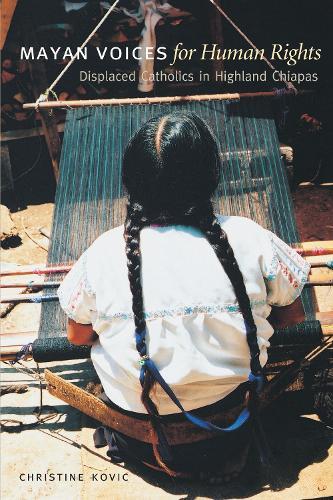Overview
In the last decades of the twentieth century, thousands of Mayas were expelled, often violently, from their homes in San Juan Chamula and other highland communities in Chiapas, Mexico, by fellow Mayas allied with the ruling Institutional Revolutionary Party (PRI). State and federal authorities generally turned a blind eye to these human rights abuses, downplaying them as local conflicts over religious conversion and defense of cultural traditions. The expelled have organized themselves to fight not only for religious rights, but also for political and economic justice based on a broad understanding of human rights. This pioneering ethnography tells the intertwined stories of the new communities formed by the Mayan exiles and their ongoing efforts to define and defend their human rights. Focusing on a community of Mayan Catholics, the book describes the process by which the progressive Diocese of San Cristobal and Bishop Samuel Ruiz Garcia became powerful allies for indigenous people in the promotion and defense of human rights.Drawing on the words and insights of displaced Mayas she interviewed throughout the 1990s, Christine Kovic reveals how the exiles have created new communities and lifeways based on a shared sense of faith (even between Catholics and Protestants) and their own concept of human rights and dignity. She also uncovers the underlying political and economic factors that drove the expulsions and shows how the Mayas who were expelled for not being ""traditional"" enough are in fact basing their new communities on traditional values of duty and reciprocity.
Full Product Details
Author: Christine Kovic
Publisher: University of Texas Press
Imprint: University of Texas Press
Dimensions:
Width: 15.20cm
, Height: 1.80cm
, Length: 22.90cm
Weight: 0.399kg
ISBN: 9780292706408
ISBN 10: 0292706405
Pages: 248
Publication Date: 01 May 2005
Audience:
Professional and scholarly
,
Professional & Vocational
Format: Paperback
Publisher's Status: Active
Availability: In Print

This item will be ordered in for you from one of our suppliers. Upon receipt, we will promptly dispatch it out to you. For in store availability, please contact us.
Reviews
In sum, this carefully constructed study merits the highest praise for its contribution not only to the history of Mayan Catholicism, but especially for its on-scene documentation of human rights abuses.--John T. Ford, The Catholic University of America Religious Studies Review (07/01/2007)
In sum, this carefully constructed study merits the highest praise for its contribution not only to the history of Mayan Catholicism, but especially for its on-scene documentation of human rights abuses. -- John T. Ford, The Catholic University of America Religious Studies Review (07/01/2007)
Author Information
CHRISTINE KOVIC is Associate Professor of Anthropology at the University of Houston–Clear Lake.



